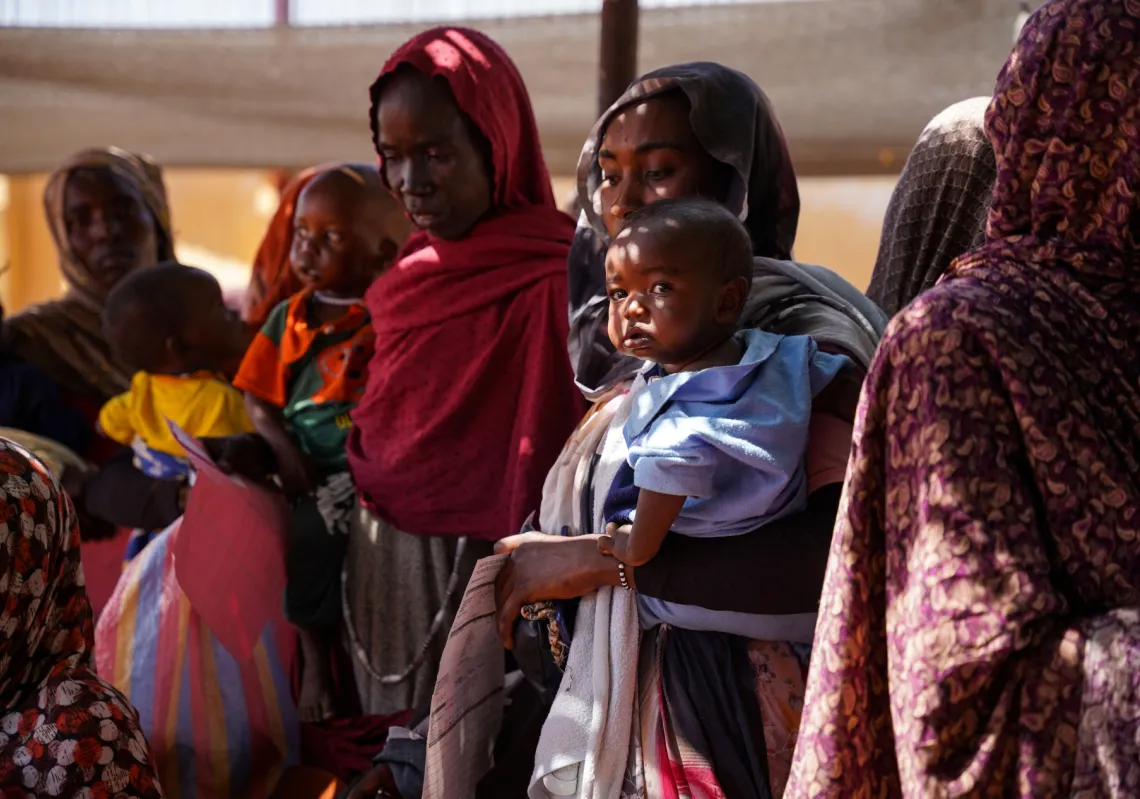Balloting so far has been marked by acute sectarian polarisation in Shiite-Sunni allegiance. The formation of a cross-sectarian coalition government will ultimately dictate the success of Iraqi democracy. Failure to negotiate may result in a relapse into sectarian violence and even military takeover.
With 95% of the vote counted in Iraq’s March parliamentary elections, the results show a toxically-fragmented country along sectarian, ethnic, and personality lines. Far from making Iraq ripe for democracy, the 2003 US-led invasion has established a sectarian-based political system like neighboring Lebanon where sect and ethnicity trump other loyalties, including the nation. Now sectarianism has become deeply entrenched and institutionalized, threatening the national unity and integrity of Iraq. On the whole, Iraqis did not vote according to party and ideology but tribe and sect.
Two weeks after the balloting, Prime Minister Nuri al-Maliki’s State of Law coalition and the cross-sectarian Iraqiya coalition headed by ex-premier Iyad Allawi were projected to win roughly the same number of seats, about 90 of the 325-member parliament.
The Iraqi National Alliance (INA), a grouping of Shiite religious parties closely linked to Iran, which includes the Islamic Supreme Council of Iraq (ISCI) and the Sadrists, supporters of the radical Shiite cleric Muqtada al-Sadr, is set to come a close third with 65-70 seats. The powerful main Kurdistan alliance of President Jalal Barzani and Massoud Talabani led as expected in Erbil, part of the autonomous Kurdish region, with about 40.
The constitution stipulates that the largest bloc should form a government, a fact that risks creating an institutional and leadership vacuum. With al-Maliki and his main rival, Allawi, falling short of the mandate—the 163 seats needed—to govern alone, they will likely need to ally with one or two blocs to form a coalition government, a complicated negotiation process fraught with security risks that might last months and likely put sectarian leaders back in the driving seat.
After the last parliamentary poll in 2005, sectarian violence erupted as political leaders clashed for more than five months in an effort to form a government. Tens of thousands of civilians were killed, plunging the country to the brink of an all-out civil war.
Although the security situation has improved today and fear of all-out civil war is unwarranted, the next few weeks will test Iraq’s fragile institutions to the breaking point. Unless they rise up to the challenge and build a reformist, cross-sectarian government, Iraq political leaders could squander precious security gains in the last three years and motivate the army to step in and fill the void. A military takeover is a real possibility.
Early signs are alarming. The vote counting has been dogged by allegations of fraud by the two leading blocs of al-Maliki and Allawi, which risks delegitimizing the whole electoral process. As his coalition’s lead had slipped, al-Maliki has called for a nationwide recount of all ballots, and invoked his position as commander in chief of the military, suggesting that the country could return to violence if his demand was not met.
In a written statement, the prime minister said that election authorities must manually recount the votes to “protect political stability and prevent the security situation from deteriorating and avoid the return of violence,” a statement interpreted by his rival coalition, Iraqiya, as a clear threat against the opposition. “This kind of statement could take us back to terrorism and violence,” said Intisar Allawi, a member of Allawi’s bloc.
Similarly, Iraqi President Talabani issued a statement asking the inept Independent High Electoral Commission (IHEC) for a recount in some provinces, in particular in Kirkuk, the disputed city that is Iraq’s northern oil hub, where Allawi held a narrow lead over Talabani and his Kurdish allies. Initially, Allawi had made similar fraud allegations when the vote count showed him trailing behind al-Maliki’s.
On the face of it, the fierce political struggle mirrored in the tally bodes well for transition to democracy. But the reality is much more complex and alarming than the mere distribution of parliamentary seats. Election is only one yardstick by which to measure democratization. There exist other critical variables that sustain and nourish a genuine democracy, most of which are missing in the new Iraq.
In the post-US invasion, Iraq’s parties, ideologies, and civil society matter much less than sect, ethnicity and tribe, a development that structurally impedes genuine democratization, as the case of Lebanon tragically demonstrates. The US occupation authorities have set up a political system that allocates power along sectarian lines.
It is no wonder then that Iraqis voted en mass for their sect and ethnicity. For example, Allawi, a secular Shiite who has emerged as the main rival to al-Maliki, has drawn mostly on heavy Sunni support in his campaign in central and western Iraq, appealing to Sunni Arab voters frustrated with their own incompetent religious leaders and political marginalization. Particularly resonating with Sunni voters was Allawi’s criticism of al-Maliki’s sectarian partisan and anti-Iran stance.
An important story of this second parliamentary elections is that Sunni Arabs have finally come out of the political wilderness in which they entrapped themselves after the invasion and ouster of Saddam Hussein. They voted overwhelmingly for Allawi whom they view as a vehicle for their political empowerment. Of all influential Iraqi politicians, Allawi has evolved into a voice of rationality and sanity, a potential cross-sectarian bridge.
In contrast, few Sunni Arabs cast a ballot for al-Maliki, a Shiite, who failed to finish in the top three in all but one of Iraq’s Sunni-majority provinces, a fact that speaks volumes about the sectarian polarization of Iraq seven years after the fall of the Saddam Hussein regime. Sensing public dissatisfaction with sectarian-religious parties, al-Maliki recasts himself as a non-sectarian nationalist who has brought law and order to the war-torn country, calling his coalition the State of Law.
Al-Maliki’s gamble did not pay off. Resenting his decision to ban hundreds of mostly Sunni candidates suspected of links to Saddam’s Baath party, many Sunnis are unconvinced that the prime minister has shed his sectarian inheritance and consider al-Dawa, a Shiite-based organization of the INA variety, the driver behind the State of Law. Others are suspicious of his continued, if reduced, ties to Iran.
While the results indicate that conservative Shiite and Sunni sectarian-based parties like the Supreme Islamic Iraqi Council (SIIC) did very poorly, radical al-Sadr, and his supporters are the big winners. Defying widespread prediction that the Sadrists were a spent force after suffering repeated military setbacks against the Americans and the Iraqi military, the Sadrists are expected to win more than 40 seats. That would be a bloc roughly the same size as the Kurds, who have served as kingmakers in tilting the balance of political power since 2005. The Sadrists have emerged as a leading social movement that can no longer be excluded or isolated.
Al-Sadrists’ spectacular gains complicate the effort to cobble together a governing coalition. They are bitter enemies of al-Maliki, who in 2008 sent the army to Basra and Baghdad and put down a challenge by al-Sadr’s Mahdi Army militia. Al-Sadr, who lives in Iran and has close ties with the mullah regime, has spearheaded resistance to the U.S. military presence amongst Iraqi Shiites, and his supporters repeatedly clashed with the Americans. His victory is welcome news to the Iranian regime which played a key role in setting up the INA bloc by bridging the divide between SIIC and the Sadrists.
With the exception of Allawi’s secularist, cross-sectarian alliance, the balance of power favors sectarian orientation cloaked in various disguises. In the end, given his religious base of support in Baghdad and rural southern provinces, al-Maliki, or one of his coalition partners, will likely try to form a government composed of some of his estranged former Shiite partners and current Kurdish allies.
There are credible reports that the two main Shiite coalitions—the State of Law and INA—are discussing a political merger that aims at sidelining secularist Allawi whose cross-sectarian bloc won strong support from minority Sunni Arabs. The only obstacle standing in the way of a unified Shiite union is the Sadrists have made it abundantly clear that they oppose al-Maliki remaining as prime minister. Iran’s role will be crucial in whether to pressure al-Sadr to drop his objection to al-Maliki or convince the latter to agree to a neutral candidate. To strengthen his bargaining position, al-Maliki has also met with Talabani and discussed a coalition government with the Kurds.
The eventuality of a Shiite merger as another sectarian-based government would alienate Sunni Arabs who, for the first time, voted in large numbers and threaten to fan the sectarian flame. “Forming coalitions is a natural right for the winning blocs, but we want the country’s interest to prevail, not the sectarian coalitions that will return us to square one,” said Iraqiya candidate Jamal al-Bateekh.
Regardless of what blocs form the new government, the negotiating process will be arduous, risky and uncertain. The US and Iran, the two most influential external players in Iraq, are keenly watching the unfolding struggle of power and positioning themselves for the morning after substantial withdrawal of American troops by the end of August.
Iran yields considerable influence by virtue of its co-opting leading Shiite groups and clerics and deepening economic and cultural ties with its neighbors since 2003. While distancing himself a little from Tehran, al-Maliki has not cut the umbilical cord with his giant neighbor. As he often states, Iran will be there after the Americans depart from Iraq.
Even if Allawi gets the premiership, he will be unlikely to antagonize the Mullah regime because that would be costly and destabilizing. Allawi would most likely turn to the Sunni-dominated Arab world, particularly Saudi Arabia, to counterbalance Iranian influence. To counterbalance Iranian influence in Iraq, Saudi Arabia has explicitly backed Allawi and encouraged Sunni Arabs to embrace him.
The vote result means that the Iranian regime will be unable to call the shots in Iraq and fill the vacuum left by the U.S. exist. Far from it, the new coalition government in Baghdad whether led by al-Maliki or Allawi will seek to maintain good relations with the Americans and Iranians and to avoid putting all its eggs in one basket. Despite their previous criticism of U.S. interference in Iraq’s domestic affairs, al-Maliki and Allawi view the relationship with the U.S. as critical to maintaining stability and peace in the short term and to deterring the country’s ambitious neighbors.
Regardless of how messy and risky the situation is in Iraq, the US must honor its commitment to extract its forces from the country and allow Iraqis to put their house in order. Iraqis, with the help of the international community, are the people most equipped and qualified to reform their sectarian-based political system and democratize. As the U.S.-led invasion and occupation of Iraq has shown, social engineering from the outside is not only dangerous and counterproductive but could also be catastrophic.
Fawaz A. Gerges – Professor of Middle Eastern Politics and International Relations at the London School of Economics and Political Science, London University. His forthcoming book is titled: “The Making of the Arab World: From Nasser to Nasrallah” (Public Affairs).







